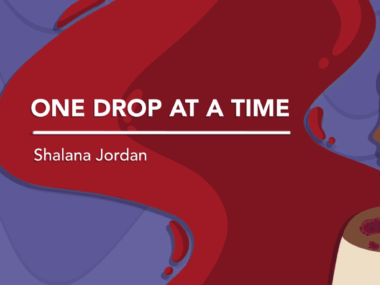End-of-life decisions should be made sooner rather than later
A health crisis made me realize I needed to get my affairs in order
Written by |

Advance directives, trusts, payable-on-death accounts, last wills, living wills, medical powers of attorney — just thinking about all of this provokes a feeling of existential dread. I’ll have plenty of time to make these end-of-life decisions later, right?
For a long time, that’s what I believed. But everything can change in an instant if you become sick with a rare, chronic illness.
Death is inevitable, so it’s silly not to have plans laid out. But I always expected my death to be years and years away. I thought I’d be old and gray — hopefully a little old lady and a grandmother — when that time came. But becoming sick changed that.
In 2018, after weeks of fatigue, nosebleeds, and bruising, routine blood work quickly turned into a critical situation. My results were concerning enough that my doctor didn’t want me to wait until my upcoming appointment. So I left my children at the preschool I owned and drove 90 minutes to one of the area’s largest hospitals, the Medical University of South Carolina.
My doctor wasn’t trying to be vague, but I didn’t fully understand the gravity of her concern. Later, I learned that my body was destroying my blood platelets. Hours of interviews, tests, and additional blood work would confirm that I was suffering from a rare disease called immune thrombocytopenia. I already had lupus, so my medical team assumed this may have been triggered by or linked to one of my frequent lupus flares.
During the testing, I was asked numerous questions: Who were my emergency contacts? Did I have a living will and a medical power of attorney? Was I an organ donor? I didn’t have answers. I had an idea about some decisions, such as funeral arrangements and organ donation. But I hadn’t really thought about anything else.
I had to consider all of these questions on the fly, when I’d thought I’d have another 20 to 30 years before I had to begin worrying about them. I’d been a healthy 34-year-old. I couldn’t wrap my head around how quickly my health had changed.
End-of-life considerations
My children were my first and most important consideration. At the time, my boys were 2 and 3 years old. How do you choose someone to potentially take over raising your children? I was estranged from my parents, so they weren’t an option. And while my ex-husband’s parents help out a lot with my boys, they’re older, live in another state, and have their own lives. Even seven years later, I still don’t have a concrete plan for what will happen to the boys if I suddenly pass. And that’s terrifying.
For most people, the next steps are funeral arrangements. First, you have to decide on burial or cremation. All sorts of accoutrements accompany either choice, such as coffins, urns, or burial plots — not to mention a location and preparations for the funeral service. Some families have a wake before the funeral as well.
You must also decide how to distribute your assets. Will they go directly to your children? If your children are under 18, you may need to establish a trust to protect your assets and children from potential usurpers, but also to ensure the money is responsibly managed and used for the children’s needs. If you don’t have children, you’ll need another plan.
Some people may want to set up their bank accounts, life insurance policy, etc., so that a trusted loved one can access them in the event of death. I learned this the hard way when both of my parents died in the Hurricane Helene flooding of September 2024. They had a small life insurance policy, but I couldn’t access it without filing court documents, acquiring their death certificates, and fighting through tons of red tape. Because my parents were carried away by the floods and missing for a while, it was months before I had their death certificates and could access these funds.
Bank accounts also can’t be relinquished without court documents, death certificates, and proper paperwork. I now have my accounts set up as payable on death. This can help your loved ones skip the probate process and avoid extended delays in accessing your funds.
Although it may sound morbid, it’s important to consider end-of-life decisions now — not later. Better to have a plan in place so your family members aren’t burdened by extra stress while mourning your loss. Rare and chronic diseases can be devastating and, at times, life-threatening, so it’s crucial to be proactive. Ask the hard questions, make the difficult plans, and ensure your family and loved ones are taken care of.
Note: Bleeding Disorders News is strictly a news and information website about the syndrome. It does not provide medical advice, diagnosis, or treatment. This content is not intended to be a substitute for professional medical advice, diagnosis, or treatment. Always seek the advice of your physician or other qualified health provider with any questions you may have regarding a medical condition. Never disregard professional medical advice or delay in seeking it because of something you have read on this website. The opinions expressed in this column are not those of Bleeding Disorders News or its parent company, Bionews, and are intended to spark discussion about issues pertaining to bleeding disorders.







